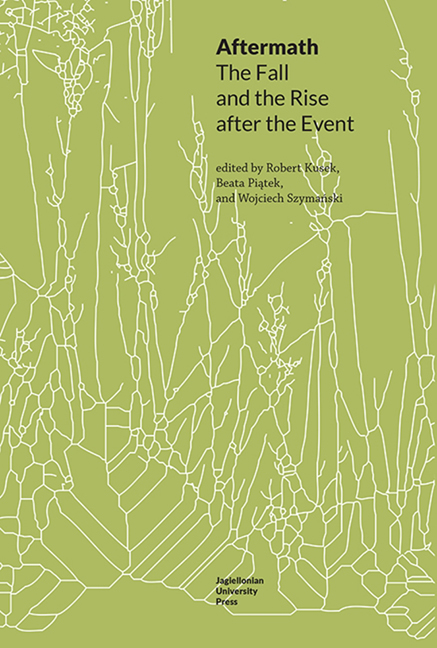“After You Died I Could Not Hold a Funeral, and So My Life Became a Funeral”: Catastrophic Aftermaths in Han Kang's Human Acts
Published online by Cambridge University Press: 06 November 2021
Summary
Introduction
Han Kang (한강) is best known to the international audience for her 2007 novel The Vegetarian, whose English translation received the 2016 Man Booker International Prize. Her recent book, Human Acts (2014) is a novelistic engagement with questions of collective trauma and memorialisation in the context of the 1980 Gwangju Uprising in South Korea. It gives an account of the social reverberations and aftermaths of state atrocity, by questioning the dominant assumption that peace ensues upon the official cessation of violence, be it in the form of political treaty or of civilian pacification, and that subsequently the violence becomes a matter of the past. Han Kang was born in Gwangju (in 1970), where she spent her childhood, until the family moved to Seoul when Han Kang was 10 (she recounts these events in Human Acts, as well as in her 2011 novel Greek Lessons, so far not available in English).
Many recent works situated within the genre of so-called trauma novel have raised the question of the aftermaths, and the psychic and cultural reverberations of violence (cf. Whitehead 2004; Nadal and Calvo 2014). Examples include Richard Flanagan's The Narrow Road to the Deep North (2013), which narrates the Japanese camps for prisoners of war, and Hanya Yanagihara's The People in the Trees (2013) – a story of vicious colonisation of a fictional Melanesian island. These novels offer nuanced accounts of the continuing echoes of violence beyond its official endpoint, as well as of the prohibitions and disavowals of public memorialisation, and of failures of justice. The originality of Han Kang's Human Acts lies in its confluence of critique of violence and the poetic figurations of its aftermaths through ghosts, spirits, and souls. These figures permeate the “real” world as recalcitrant reminders of that which remains unresolved, irreparable, and unjust about the past.
The Gwangju Democratisation Movement included protest marches, acts of civil disobedience, and armed insurgency, directed against the military dictatorship of general Chun Doo-hwan (1979–1988). Following the assassination of his predecessor, Chun Doo-hwan introduced the martial law, curtailed civic liberties, and banned free media and political activism (Lewis 2002). In May 1980, he gave orders that civilian protests in Gwangju be suppressed by paratroopers of the Republic Of Korea Special Warfare Command.
- Type
- Chapter
- Information
- AftermathThe Fall and the Rise after the Event, pp. 63 - 76Publisher: Jagiellonian University PressPrint publication year: 2022



